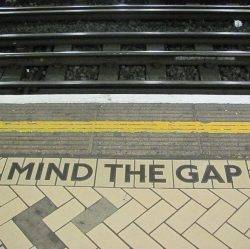August 6, 2024
How can companies address the skills gap and ongoing talent shortage in their industry?
 The modern business landscape is facing a significant challenge: a growing skills gap and a persistent talent shortage across various industries. Companies are finding it difficult to find qualified candidates with the necessary skills to fill important roles as technology changes quickly and job requirements change. This talent shortage may hinder general productivity, growth, and innovation. Employers can, however, take proactive measures to address these problems and thrive by implementing smart solutions and adopting innovative tactics like Employer of Record (EOR) services to acquire top talent.
The modern business landscape is facing a significant challenge: a growing skills gap and a persistent talent shortage across various industries. Companies are finding it difficult to find qualified candidates with the necessary skills to fill important roles as technology changes quickly and job requirements change. This talent shortage may hinder general productivity, growth, and innovation. Employers can, however, take proactive measures to address these problems and thrive by implementing smart solutions and adopting innovative tactics like Employer of Record (EOR) services to acquire top talent.
The mismatch between the skills that employers require and the skills that employees possess is known as the “skills gap.” This discrepancy can arise due to various factors, including technological advancements, changing industry trends, and a lack of relevant training and education programs. The lack of competent applicants in particular fields or areas, on the other hand, is referred to as the “talent shortage,” which exacerbates the skills gap.
Strategies to Address the Skills Gap and Talent Shortage
- Upskilling and Reskilling Existing Employees: Investing in training and development programs for your current workforce can be a cost-effective way to bridge the skills gap. Employees can be retrained for new roles or have their current knowledge and experience leveraged, allowing you to meet your changing needs.
- Expanding Your Talent Pool: Broaden your search for talent by looking beyond traditional sources. Consider tapping into underrepresented groups, such as women, minorities, and individuals with disabilities, who have extraordinary untapped potential.
- Leveraging Employer of Record (EOR) Services: EORs can be a valuable service for accessing global talent pools. They handle the complexities of international hiring, including compliance, payroll, and benefits administration, allowing you to tap into skilled professionals globally without establishing legal entities in each country.
- Building Partnerships with Educational Institutions: Collaborate with universities, colleges, and vocational schools to develop tailored training programs that align with your industry’s needs. This can create a pipeline of skilled graduates ready to enter the workforce.
- Embracing Apprenticeships and Internships: Offer apprenticeships and internships to provide hands-on experience and training to young talent. This can help cultivate a skilled workforce while allowing you to assess potential candidates for future roles.
- Creating a Culture of Learning and Development: Foster a continuous learning environment where employees are encouraged to develop new skills and knowledge. This can be achieved through mentorship programs, online courses, and ongoing professional development opportunities.
- Offering Competitive Compensation and Benefits: To attract and retain top talent, offer competitive salaries, benefits, and perks that align with industry standards and the expectations of your target candidates.
- Embracing Flexibility: Offer flexible work arrangements, such as remote work options or flexible hours and even hybrid work, to appeal to a wider range of candidates and accommodate diverse needs.
The Role of Employer of Record (EOR) Services
EOR services can help address the talent shortage by:
- Accessing Global Talent: EORs provide access to a global pool of skilled professionals, allowing you to overcome geographical limitations and find the right talent for your needs.
- Simplifying International Hiring: EORs handle the complexities of international employment, including legal compliance, payroll, and benefits administration, making it easier for you to hire from abroad.
- Reducing Time-to-Hire: By streamlining the hiring process, EORs can help you fill critical roles quickly, minimizing the impact of talent shortages on your operations.
- Mitigating Risks: EORs ensure compliance with local labor laws and regulations, protecting your company from potential legal and financial risks.
The skills gap and talent shortage are significant challenges facing businesses today. According to a recent survey of executives and managers, 87% indicated that they either currently observe skills gaps in their organizations or anticipate seeing them in the coming years. However, by adopting a multi-faceted approach that includes upskilling, expanding talent pools, partnering with educational institutions, and leveraging EOR services, companies can proactively address these issues and secure the skilled workforce they need to thrive in the competitive global market. Remember, investing in your workforce is an investment in the future of your business.
















